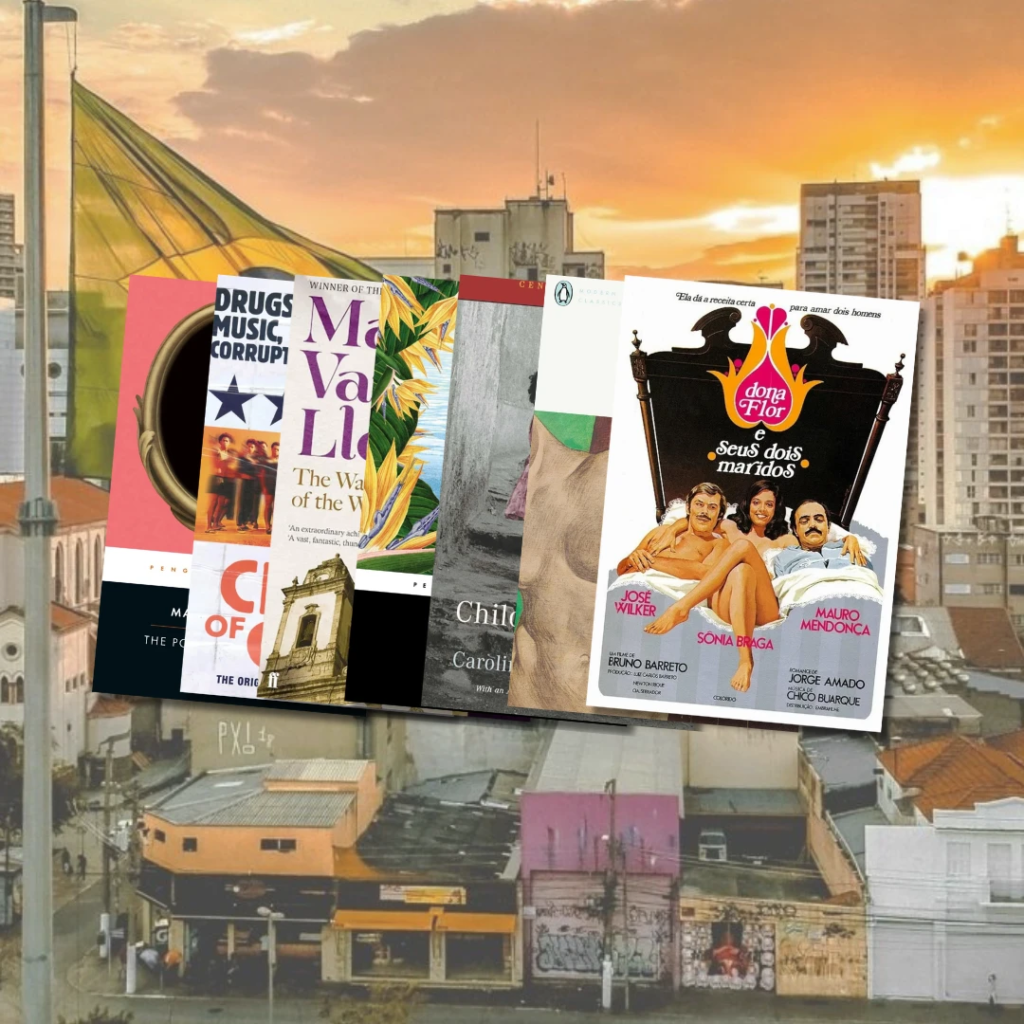Want to feel Brazil without leaving home? These 7 books capture its joy, struggles, and spirit—perfect for your next reading escape.
When someone says “Brazil,” what pops into your head first? Maybe the pulsing rhythm of samba during Carnival, or the golden sweep of Copacabana beach. Maybe you picture dense Amazonian rainforests, soccer stadiums bursting with cheers, or the sizzling smell of churrasco on a grill.
Brazil is a country that seems larger than life, and luckily, you don’t have to hop on a plane to experience it. With the right book in hand, you can be right there, soaking up sunshine, music, and stories.
If you need a dose of sunshine, here are seven books that will teleport you straight to sunny Brazil, each offering a window into the culture, history, and everyday magic of the world’s fifth-largest country.
Dona Flor and Her Two Husbands by Jorge Amado
If you want a book that feels like Brazil itself: vibrant, sensual, a little mischievous, then Jorge Amado is your guy. In Dona Flor and Her Two Husbands, we meet Flor, a cooking teacher in Bahia, whose first husband is a gambling rogue who dies suddenly. She remarries a respectable pharmacist… only for her late husband’s ghost to return, hanging around and being as cheeky and lusty as ever.

This novel is pure Bahia: hot nights, aromatic kitchens, laughter mixed with deep longing. It’s also a playful reminder that love (and desire) doesn’t always fit neatly into categories. Amado captures Brazil’s spirit. It’s clear that he understands the country’s humor, its contradictions, and its embrace of life’s spice. Reading it feels like being swept up in a street party, and it will have you desperate for more.
The Hour of the Star by Clarice Lispector
Now let’s shift to something more contemplative. Clarice Lispector is one of Brazil’s most celebrated writers, and The Hour of the Star is her short, sharp masterpiece. It tells the story of Macabéa, a poor typist living in Rio, through the eyes of a male narrator who is almost painfully aware of his own limitations in telling her story.
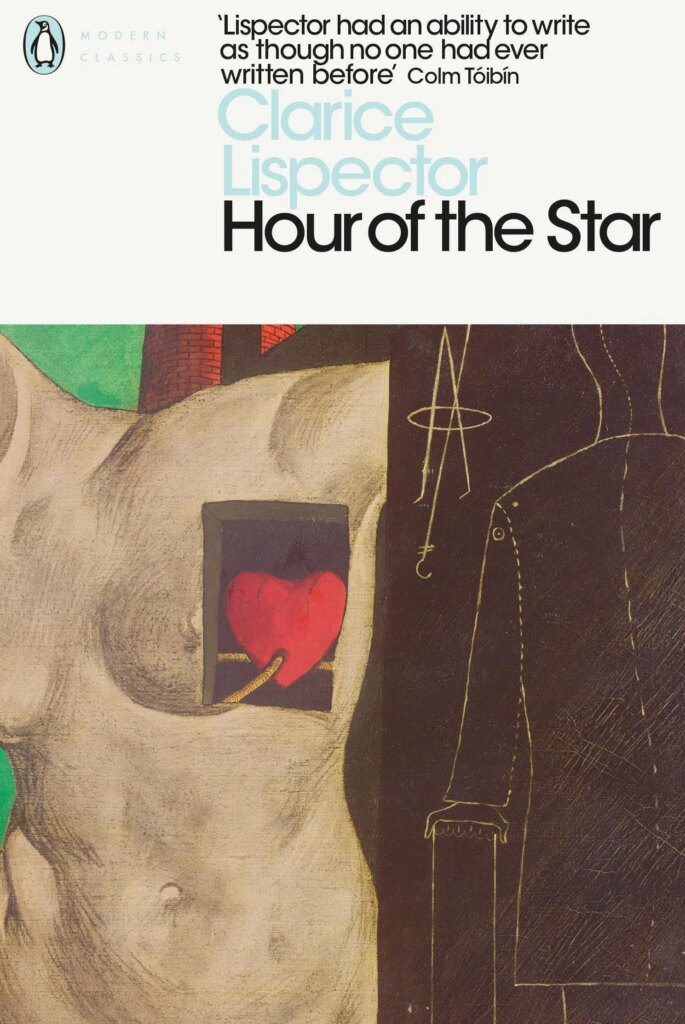
Sounds heavy, right? But what Lispector does is make you feel Brazil’s social realities: poverty, gender roles, the invisible struggles of everyday people, all without ever losing her lyrical style. It’s the kind of book you finish and then sit quietly for a while, staring into space. If Amado is Carnival fireworks, Lispector is the quiet rhythm of bossa nova on a rainy night.
Child of the Dark by Carolina Maria de Jesus
Okay, brace yourself. This is not an easy read, but it’s an essential one. Child of the Dark is the diary of Carolina Maria de Jesus, a single mother living in a São Paulo favela in the 1950s. She scavenged paper to write her observations, which later became one of the most important firsthand accounts of urban poverty in Brazil.
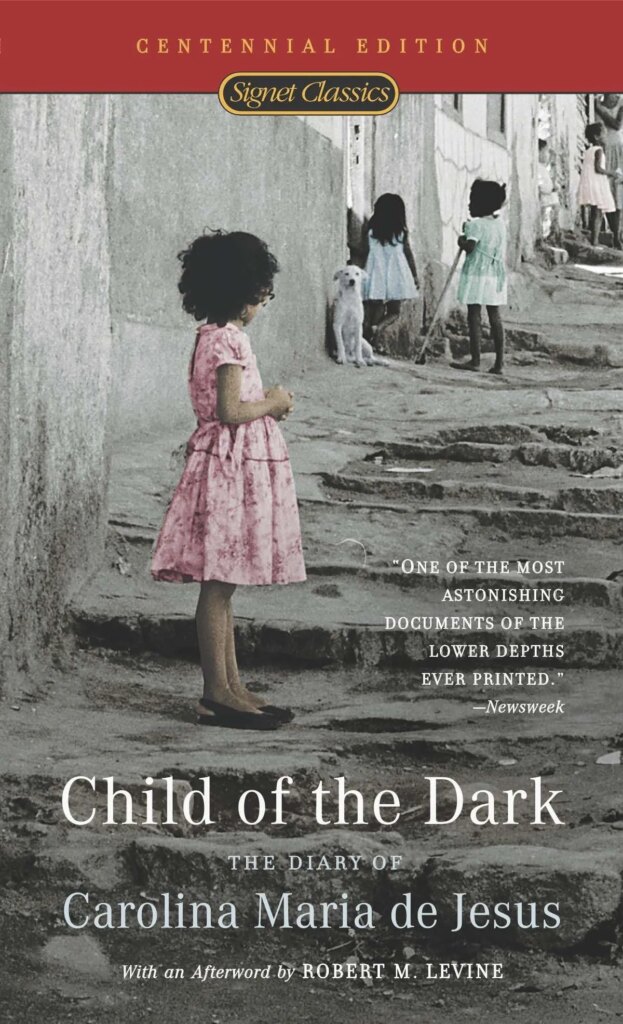
Her voice is raw, unfiltered, and unforgettable. Through her words, you see both the crushing weight of poverty and the stubborn dignity of someone who refuses to be erased. Reading it today also gives you a sense of how much Brazil has changed, but also how much remains the same.
It’s a teleportation to Brazil, yes, but not the glossy postcard version. What it does show you, though, is the grit and the determination of Brazilians. It engulfs you in the culture, in their world. It’s like nothing else.
Captains of the Sands by Jorge Amado
If you want a novel that’s both adventurous and deeply rooted in Brazil’s social fabric, Captains of the Sands is a perfect choice. Written by Jorge Amado (yes, him again… listen, he’s just that good), it follows a gang of street kids surviving on the edges of Salvador, Bahia. They’re thieves, tricksters, dreamers, and rebels, carving out their own version of family while society mostly turns its back on them.
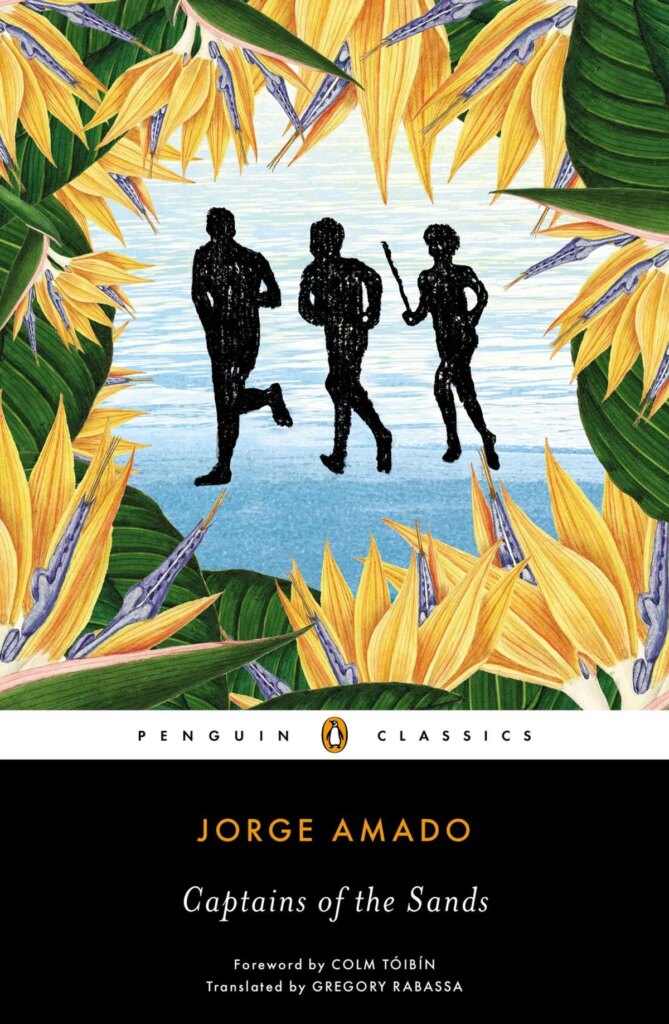
The book captures the chaos and charm of Brazil’s coastal city life in the 1930s, with its docks, markets, and alleyways buzzing with energy.
It’s gritty in places, heartbreaking in others, but always bursting with the resilience and wild spirit of youth, as well as the spice and excitement of Brazil.
If you’ve ever wanted to walk the sun-soaked streets of Salvador and see the world through the eyes of kids who refuse to be ignored, this novel will take you there.
The War of the End of the World by Mario Vargas Llosa
Technically, this novel was written by a Peruvian Nobel Prize winner, but it’s set in Brazil and does a really good job at immersing you in the dramatic backdrop of the Canudos rebellion in the late 19th century. Vargas Llosa paints a sweeping epic of charismatic leaders, desperate followers, and the clash between the Brazilian government and a messianic community in the backlands.

It’s history, politics, and human drama all rolled into one. Skip the Brazilian museums and just crack this one open. Through its pages, you’ll feel the dry heat of the sertão, the dust of marching armies, and the fever of utopian dreams. If you like your Brazil with a side of epic storytelling, this one’s a winner.
City of God by Paulo Lins
If you saw the film City of God and thought it was powerful, the novel is even more gut-punching. Paulo Lins grew up in Rio’s favelas (kind of like a shanty town), and his book (based loosely on real events) charts the rise of organized crime and gang violence over several decades.
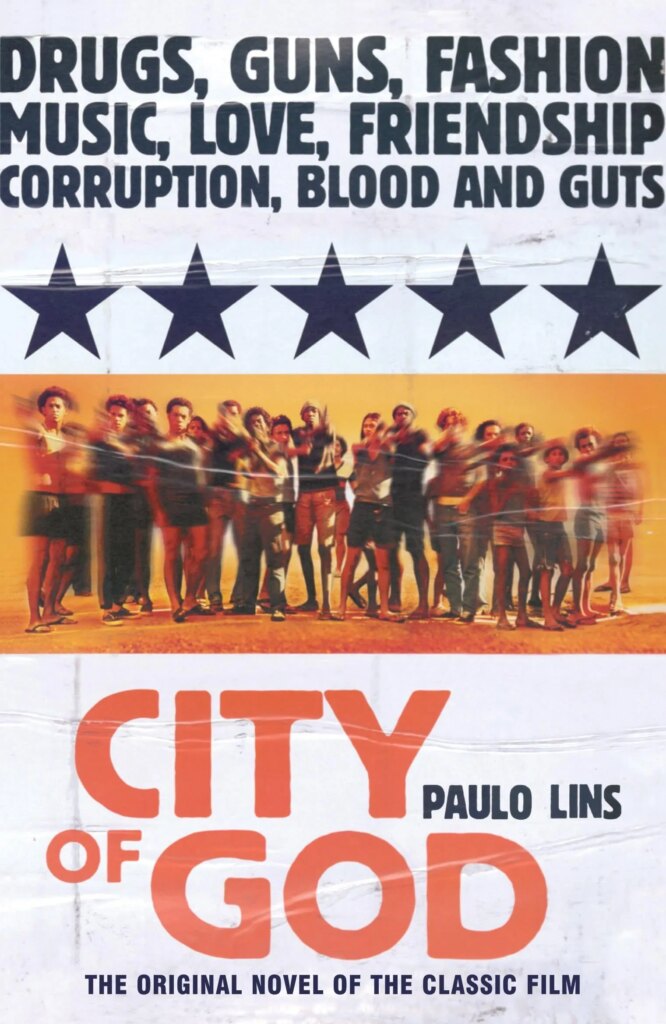
This isn’t a book you read to “relax,” don’t get confused. It is absolutely a book that demands your attention. Through its pages, you’ll hear the slang, the laughter, the gunshots, and the grief of life in a Rio favela. It’s gritty and unflinching, but also deeply human. By the end, you don’t just understand the characters; you feel the weight of their world.
The Posthumous Memoirs of Brás Cubas by Machado de Assis
If you want Brazilian fiction that’s witty, playful, and unlike anything else you’ve read, look no further than Machado de Assis. In The Posthumous Memoirs of Brás Cubas (sometimes called Epitaph of a Small Winner), the narrator tells his life story from beyond the grave. Yes, you read that right, it’s a memoir written by a dead man.
Instead of being gloomy, it’s sharp, ironic, and surprisingly funny. Machado pokes fun at Brazil’s 19th-century society, its pretensions, and its politics, all while letting Brás Cubas reflect on his misadventures with a kind of cheeky honesty only possible in the afterlife.
The best part? It’s light on its feet. The chapters are short, the tone is breezy, and you feel like you’re in on a joke with one of Brazil’s greatest literary minds. Perfect hammock reading, with sunshine and a smile.
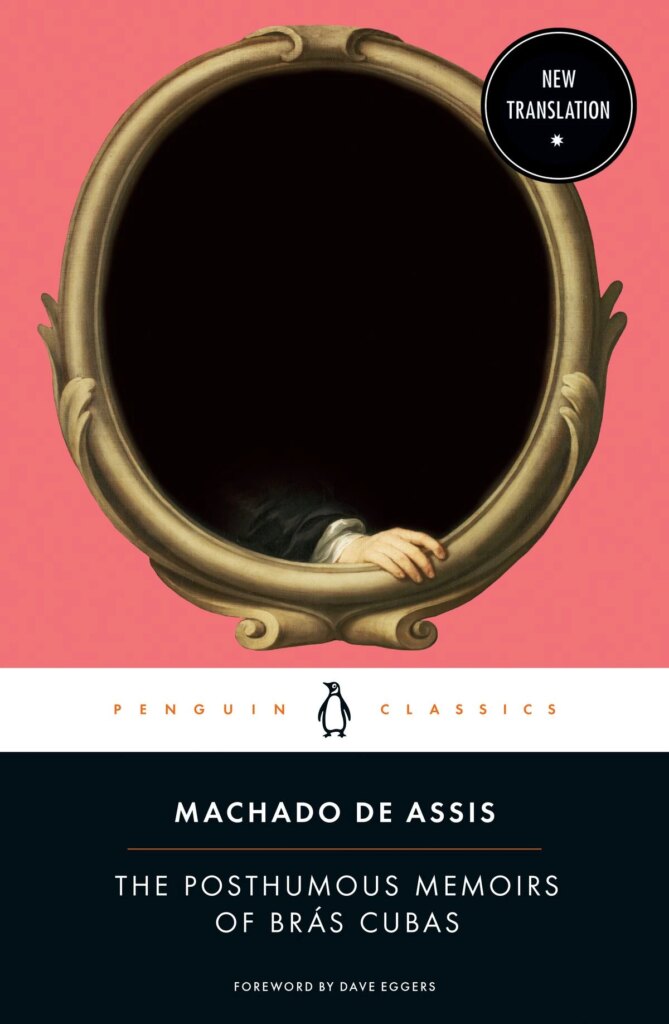
Join our community of 1.5M readers
Like this story? You'll love our free weekly magazine.





